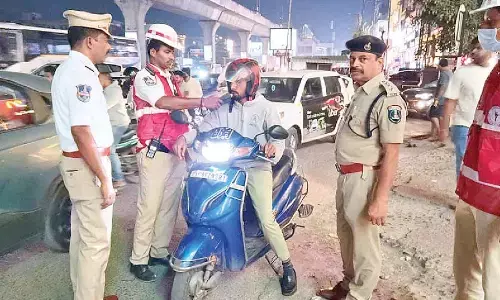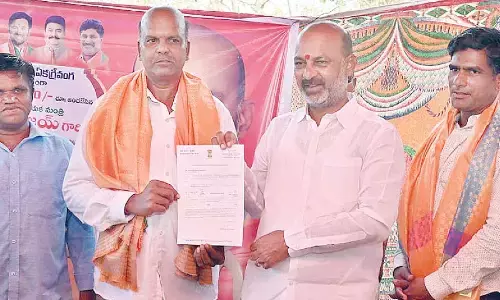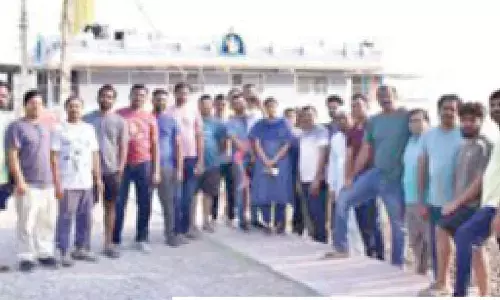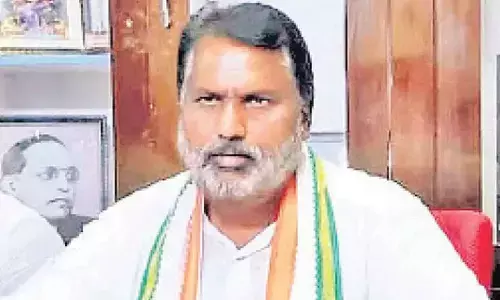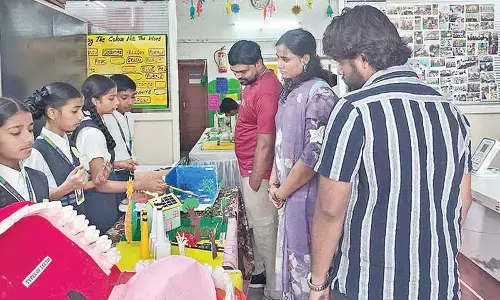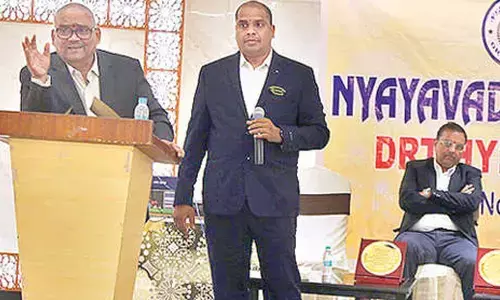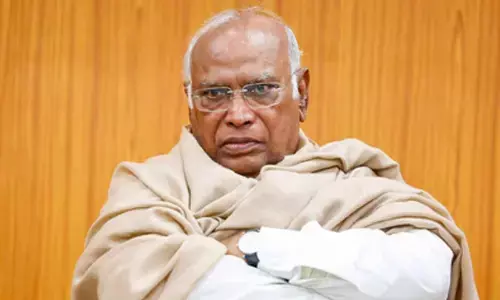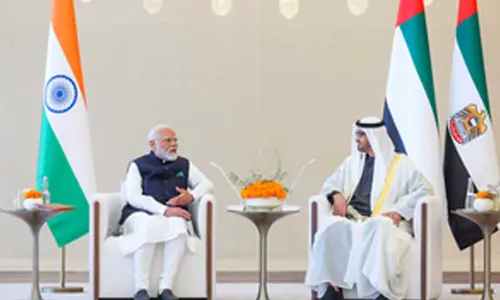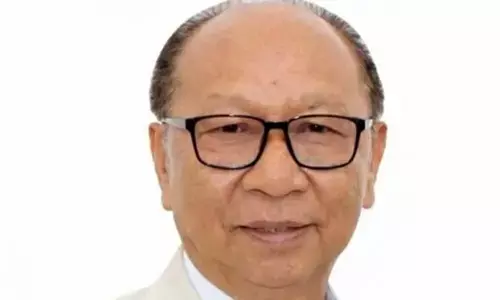Putin and Kim Forge Military Alliance Amid Global Tensions
Share :
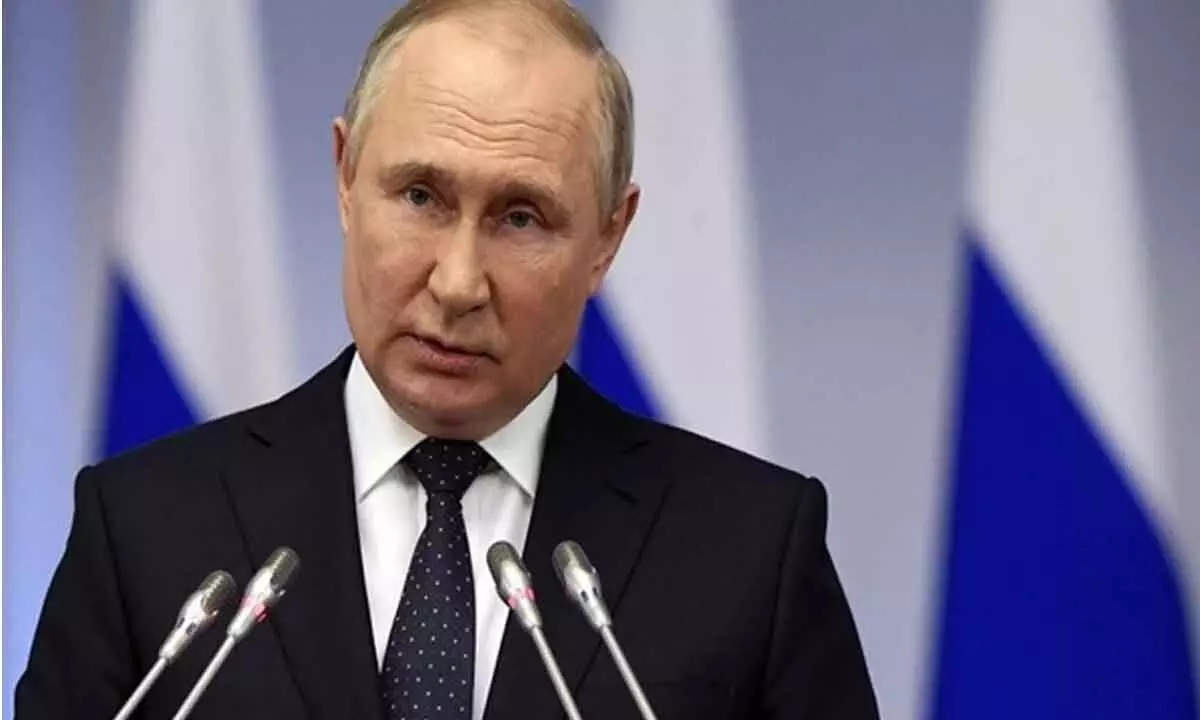
Russian President Vladimir Putin
Russian President Vladimir Putin and North Korean leader Kim Jong Un have signed a significant military alliance, marking a major shift in Russia's post-Soviet policy in Asia. This pact includes mutual defense commitments, raising concerns among the U.S. and its Asian allies about potential military and nuclear collaborations.
Russian President Vladimir Putin signed a deal with North Korea's Kim Jong Un on Wednesday that includes a mutual defence pledge, one of Russia's most significant moves in Asia for years that Kim said amounted to an "alliance". Putin's pledge overhauls Russia's entire post-Soviet policy on North Korea just as the United States and its Asian allies try to gauge how far Russia could deepen support for the only country to have tested a nuclear weapon this century.
On his first visit to Pyongyang since July 2000, Putin explicitly linked Russia's deepening of ties with North Korea to the West's growing support for Ukraine and said Moscow could develop military and technical cooperation with Pyongyang. After talks, they signed a "comprehensive strategic partnership" pact, which Putin said included a mutual defence clause in the case of aggression against either country.
"The comprehensive partnership agreement signed today provides, among other things, for mutual assistance in the event of aggression against one of the parties to this agreement," Putin said. He said Western deliveries of advanced, long-range weaponry including F-16 fighters to Ukraine for strikes against Russia breached major agreements.
"In connection with this, Russia does not exclude for itself the development of military-technical cooperation with the Democratic People's Republic of Korea," Putin said. Kim praised Russia for making what he cast as an enormously significant strategic move to support North Korea, which was founded in 1948 with the Soviet Union's backing. Depending on the exact wording of the pact, which was not immediately released, it could be a dramatic shift in the entire strategic situation in Northeast Asia, said Artyom Lukin, at Russia's Far Eastern Federal University.
While North Korea has a defence treaty with China, it does not have active military collaboration with Beijing like it has developed with Russia over the past year. North Korea also signed a 1961 treaty with the Soviet Union that included promises of mutual support in the event of an attack. China, the North's main political and economic benefactor, had no immediate response. Putin's courting of Kim, which includes gifts of limousines, a tour of Russia's new space launch centre and a "strategic partnership" pact including a mutual defence clause, has alarmed the United States and its Asian allies.
Their spy agencies are trying to work out just how far the 71-year-old Kremlin chief will go - and what missile or even nuclear technology Russia might pass to North Korea in exchange for munitions to fight in Ukraine. That question remains, thus far, unanswered.
COMRADE KIM Putin was greeted by cheering crowds lining the streets of Pyongyang along with children waving Russian flags and a military salute. Kim, 40, greeted the 71-year-old Kremlin chief at the airport.
After talks, Putin drove Kim around in a luxury Russian limousine. They then switched places and Kim drove Putin. Putin accused the United States, South Korea and Japan of raising tensions on the Korean peninsula and said North Korea had a right to strengthen its own defences.
Kim said the pact would expand cooperation in politics, economy and defence, calling it "strictly peace-loving and defensive" in nature. "Our two countries' relations have been elevated to the new higher level of an alliance," Kim said.
At the start of their summit, Kim expressed "unconditional support" for "all of Russia's policies", including "a full support and firm alliance" for Putin's war with Ukraine. Putin said Moscow was fighting the hegemonic, imperialist policy of the United States and its allies, Russian media reported.
"We highly appreciate your consistent and unwavering support for Russian policy, including in the Ukrainian direction," Putin said. The West slapped on Russia what it cast as the toughest ever sanctions in response to the Russian invasion of Ukraine in February 2022.
The conflict in eastern Ukraine began in 2014 after a pro-Russian president was toppled in Ukraine's Maidan Revolution and Russia annexed Crimea, with Russian-backed separatist forces fighting Ukraine's armed forces. 'UNCONDITIONAL AND UNWAVERING SUPPORT'
Putin, who had hosted Kim at a summit in September in the Russian Far East that accelerated the two countries' military cooperation, received a lavish welcome in Pyongyang. An honour guard including mounted soldiers, and a large crowd of civilians gathered at the Kim Il Sung Square by the Taedong River running through the capital. The scene included children holding balloons and giant portraits of the two leaders with national flags adorning the square's main building. North Korea "expresses full support and solidarity to the Russian government, army and people in carrying out a special military operation in Ukraine to protect sovereignty, security interests, as well as territorial integrity", Kim told Putin.
The Russian president arrived at Pyongyang's airport earlier in the day. After Kim welcomed him with an embrace, the two shared "pent-up inmost thoughts" on the ride to the state guest house, North Korean state media said. The countries' partnership was an "engine for accelerating the building of a new multi-polar world" and Putin's visit demonstrated the invincibility and durability of their friendship and unity, North Korea's state news agency KCNA said. Russia has used its warming ties with North Korea to needle Washington, while heavily sanctioned North Korea has won political backing and promises of economic support and trade from Moscow. The United States and its allies say they fear Russia could provide aid for North Korea's missile and nuclear programmes, which are banned by U.N. Security Council resolutions, and have accused Pyongyang of providing ballistic missiles and artillery shells that Russia has used in its war in Ukraine.
Moscow and Pyongyang have denied weapons transfers.

